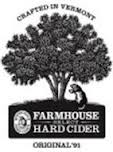Hard cider was one of the most popular beverages in Colonial America, along with rum, but then beer took over and took off never really looking back. As craft beer has exploded and drinkers are now looking for the next most interesting beverage, cider is making a comeback. What has been known as an English beverage (at best) and a sugary apple juice meant for pansy drinkers (at worst), is now taking a turn towards the interesting and innovative due to some bastions of the industry as well as the new kids on the block. Will cider ever become as huge as the craft beer movement has become? Probably not, but that does not mean it is not worth paying attention to and respecting.
The cidery that everyone has become accustomed to seeing is Woodchuck out of Vermont. In 1990, Woodchuck released America’s first Hard Apple Cider in 200+ years. Since then, the brand has become ubiquitous with American Hard Cider, which is a feat itself. Even so, it really hid in the shadows of beer and wine. Then the beer movement took hold of many palates across America and Woodchuck saw an opportunity to increase its market share. If palates were more accepting of craft beer, then they would be more willing to step toward more interesting ciders.
Woodchuck has pushed the cider envelope once more with its Private Reserve, its Seasonal selections, and its Farmhouse Select varieties. The old man on the block is showing the new consumer that there is more to cider than the “beer” that college girls ordered at the bar because they did not like actual beer.
 With the groundwork laid by Woodchuck, other micro-cideries have opened up across the country producing high-quality, big flavor ciders – and the big players in beer are taking notice. But unlike craft beer, the macrobreweries were on the cider trend early and have started to buy up the bigger boys and create ciders of their own. MillerCoors recently bought out Crispin Ciders which was on the fringes of cider production, being titled the Dogfish of cideries due to its “extreme” usage of various yeasts with a traditional apple base. Heineken bought out Strongbow, an old school UK cidery, as well. Big boys aren’t just using their traditional buy-you-out-of-the-market technique either as Michelob Ultra Light Cider hit the market in 2012, once again making the point that Budweiser can water down anything but still keep the name. Not to leave the big boys to their new toys, the largest craft brewery in the country, Boston Beer Company, released its own brand of ciders: Angry Orchards.
With the groundwork laid by Woodchuck, other micro-cideries have opened up across the country producing high-quality, big flavor ciders – and the big players in beer are taking notice. But unlike craft beer, the macrobreweries were on the cider trend early and have started to buy up the bigger boys and create ciders of their own. MillerCoors recently bought out Crispin Ciders which was on the fringes of cider production, being titled the Dogfish of cideries due to its “extreme” usage of various yeasts with a traditional apple base. Heineken bought out Strongbow, an old school UK cidery, as well. Big boys aren’t just using their traditional buy-you-out-of-the-market technique either as Michelob Ultra Light Cider hit the market in 2012, once again making the point that Budweiser can water down anything but still keep the name. Not to leave the big boys to their new toys, the largest craft brewery in the country, Boston Beer Company, released its own brand of ciders: Angry Orchards.
But just like in the world of craft breweries, the big boys can monopolize the market, but it is the small producers who are doing the best work. Take for example Tilted Shed of Sonoma County, California, who produces small-batch ciders. They have turned the old school notion of cider on its head by releasing “January Barbecue Smoked Cider,” which uses pear wood smoked apples. Holy Hell, things have gotten crazy in this bitch. There are sour ciders coming from Basque country in Europe and champagne-like ciders coming from France. To say that the craft cider landscape should be shown some love is an understatement. If the people behind the new movement continue to go down the path they are forging, cider will no longer stand in the shadow of beer, but regain its rightful place amongst America’s great alcoholic beverages.
 American Craft Beer The Best Craft Beer, Breweries, Bars, Brewpubs, Beer Stores, And Restaurants Serving Serious Beer.
American Craft Beer The Best Craft Beer, Breweries, Bars, Brewpubs, Beer Stores, And Restaurants Serving Serious Beer.
